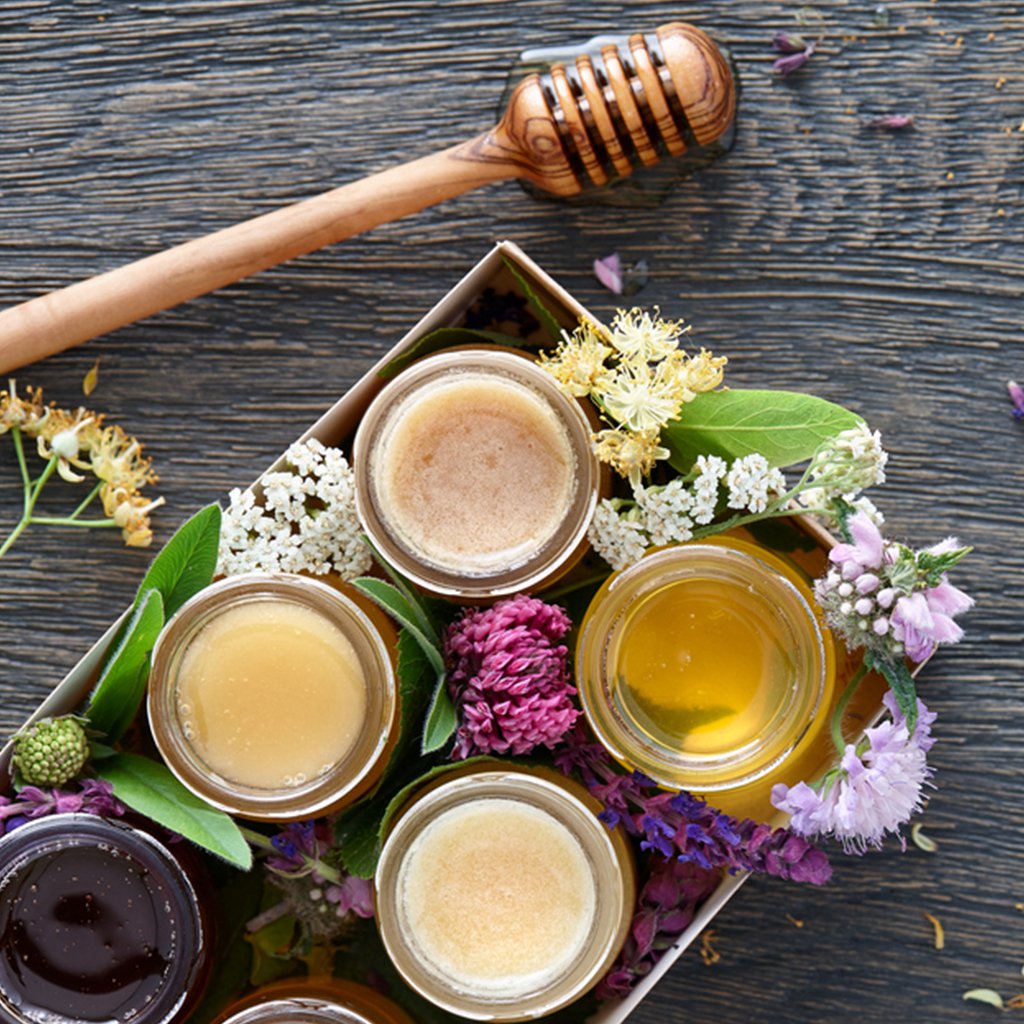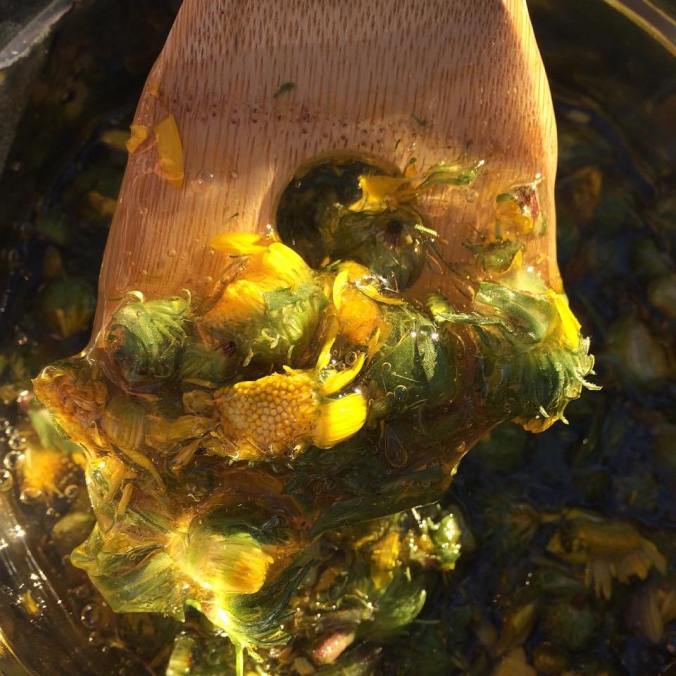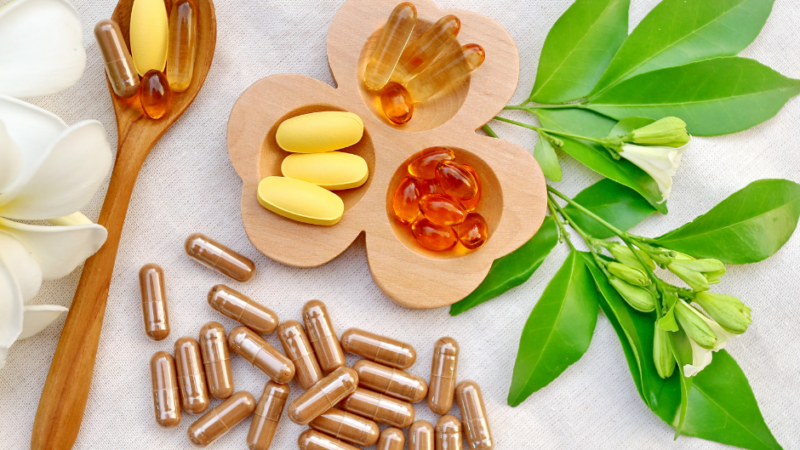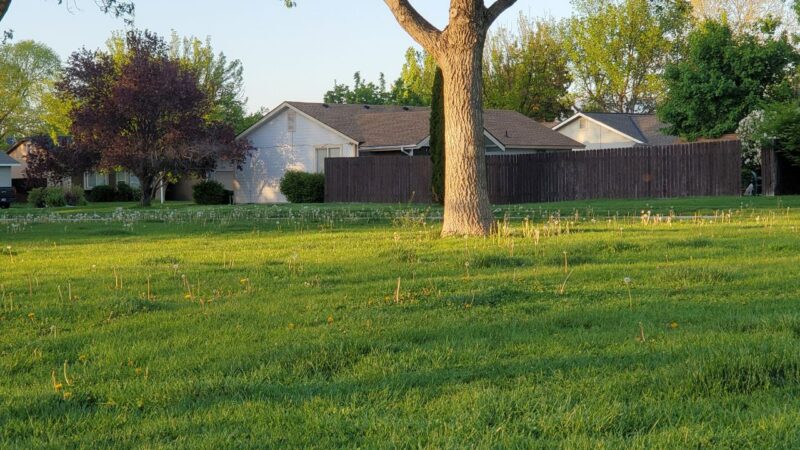Herbal Honey an Ancient Medicinal

Herb Infused Honey. Honey is medicine. Raw, unpasteurized honey is antimicrobial, anti-inflammatory and anti-allergenic. It helps build blood and actively promotes the healing of tissues. And according to Stephen Buhner,
“Honey contains (among other things) a complex assortment of enzymes, organic acids, esters, antibiotic agents, trace minerals, proteins, carbohydrates, hormones, and antimicrobial compounds. One pound of the average honey contains 1333 calories (compared with white sugar at 1748 calories), 1.4 grams of protein, 23 milligrams of calcium, 73 milligrams of phosphorus, 4.1 milligrams of iron, 1 milligram of niacin, and 16 milligrams of vitamin C, and vitamin A, beta carotene, the complete complex of B vitamins, vitamin D, vitamin E, vitamin K, magnesium, sulfur, chlorine, potassium, iodine, sodium, copper, manganese, high concentrations of hydrogen peroxide, and formic acid… and the list goes on. Honey contains more than 75 different compounds! Many of the remaining substances in honey are so complex (4-7 percent of the honey) that they have yet to be identified.”
All this and we haven’t even added the plant medicine.
Also, herbal honeys are delicious and so incredibly pleasurable to make. Everything about the process is sensual and glorious, if a bit sticky (this is why we have tongues and window shades). There’s nothing quite so beautiful as honey lit up by sunshine. Combine that with the colours and scents of fresh herbs and you’ve got yourself a bonafide experience. Take your honey in tea, on toast, use it to make medicinal syrups or liqueurs or just eat it off the spoon.
Depending on the herb you choose, there are a couple of ways to make yourself an herbal honey—cold or warm infusion. More delicate plants like wild rose or elderflower do better with a cold infusion, while “tougher” herbs like rosemary or grindelia need heat to extract the flavour and medicine. Fresh herbs are much preferable to dried.
A good rule of thumb is a 1 parts herb to 12 parts honey for a cold infusion and 1 part herb to 5 parts honey for a warm infusion. You want more honey in a cold infusion as you won’t be evaporating off the plant waters with heat. More honey means less chance of spoilage.
Curious how to make a cold infusion of Wild Rose Honey or Warm Infusion of Grindelia Honey visit GatherVictoria.com
Herbs best suited for cold infusions:
Elderflower, Rose, Mint, Linden, Queen Anne’s Lace Blossoms
Herbs best suited for warm infusions:
Grindelia, Fir tips, Lavender, Yarrow, Thyme, Rosemary, Wild Bergamot, St. John’s Wort, Balsam root, Holy Basil, Sweet Basil, Calendula
And a quick note: leave some blossoms for the bees! Forage responsibly, take only what you need and plant flowering herbs for our pollinating pals.







